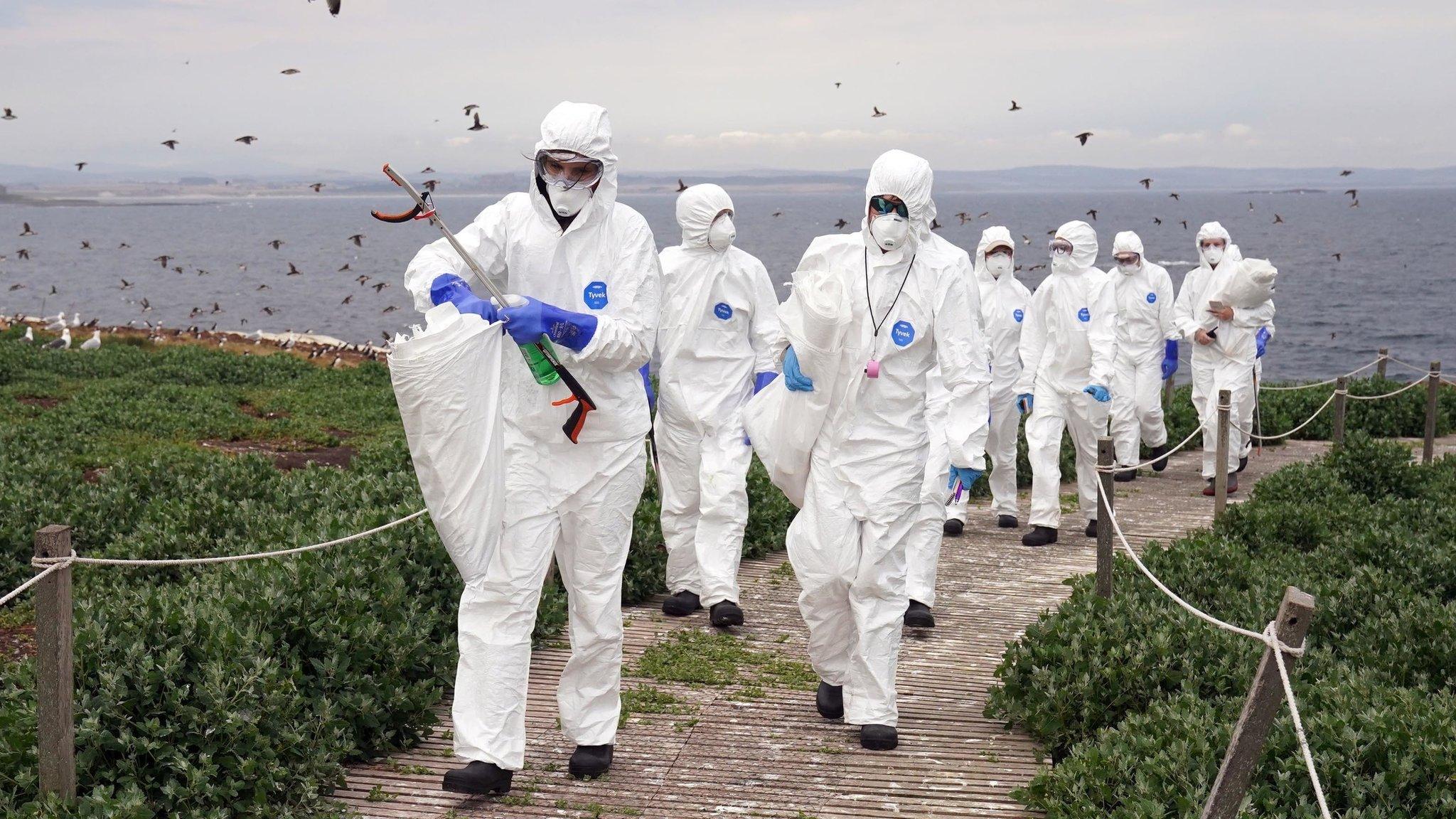Bird flu hits Northumberland Arctic terns colony
- Published
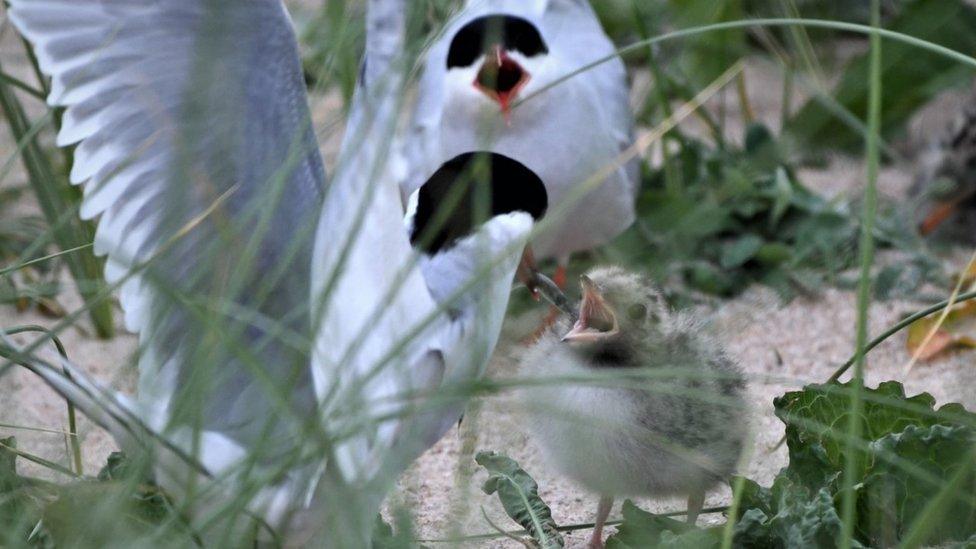
The breeding colony at Long Nanny is the UK's biggest mainland colony which this year attracted a record number of breeding pairs
More than 600 dead Arctic tern chicks have been collected at the biggest mainland breeding colony in the UK following an outrbreak of bird flu.
National Trust rangers initially recorded 2,600 eggs for the peak breeding season at Long Nanny in Northumberland - but within the past two weeks discovered dying chicks.
A number of dead adult seabirds have also been collected from the site.
It is feared the population of rarer little terns could also be infected.
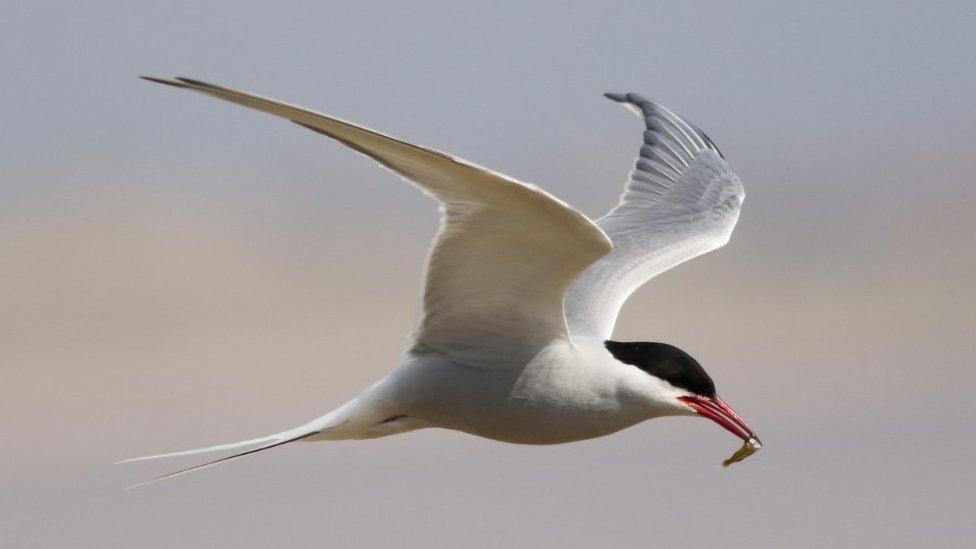
Bird flu is posing a big challenge to the seabirds which migrate from their northern hemisphere breeding grounds to the Antarctic and back again each year
James Porteus, lead ranger at the site near Beadnell said: "The season started so well, with over 1,600 pairs of Arctic terns returning to breed this season - the highest number of breeding pairs at the site since 2018.
"But, a couple of weeks ago, we started to notice that some of the chicks were dying and since then we have picked up over 600 dead Arctic tern chicks from across the site.
"We have also started to discover some dead adults now which is equally heart-breaking and worrying."
It is feared an infected bird may have got into the colony and passed on the deadly disease.
The six rangers working round the clock fear the impact of bird flu could undo population gains made in recent years.
Years to recover
A bird flu outbreak on the nearby Farne Islands killed more than 6,000 seabirds last year, and the islands were closed to landing visitors again in April.
Ben McCarthy, head of nature conservation and restoration ecology at the National Trust, said: "After last year's outbreak of bird flu on the Farne Islands, when Long Nanny was unaffected, we were really hopeful that the colony would escape the worst of this deadly disease.
"However, this news, is devastating for these vulnerable birds and it will take years for the populations to recover."
Visitors to the area are being advised to keep a safe distance from the colony, with dogs on leads to avoid disturbing any of the birds at Long Nanny.
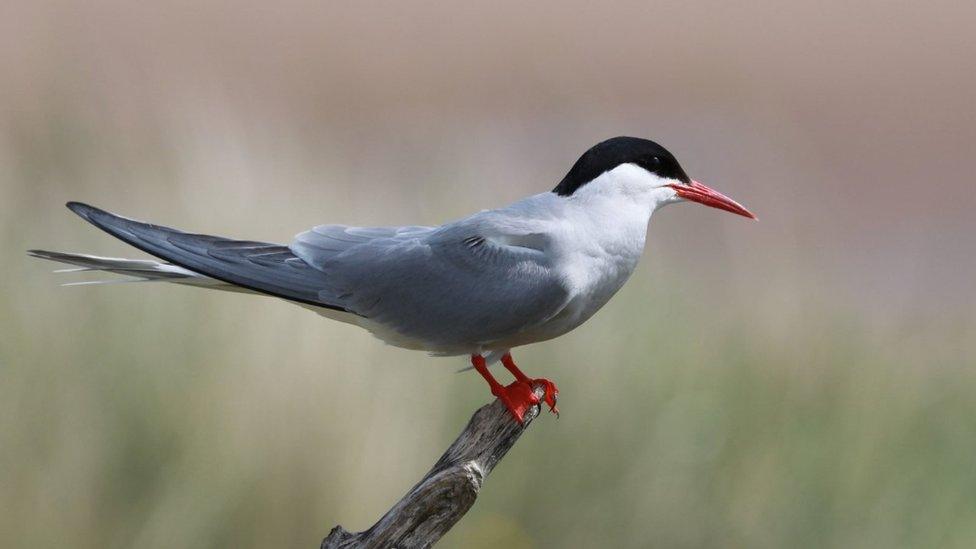
Long Nanny is usually a safe breeding ground for the Arctic terns

Follow BBC North East & Cumbria on Twitter, external, Facebook, external and Instagram, external. Send your story ideas to northeastandcumbria@bbc.co.uk, external.
Related topics
- Published4 May 2023
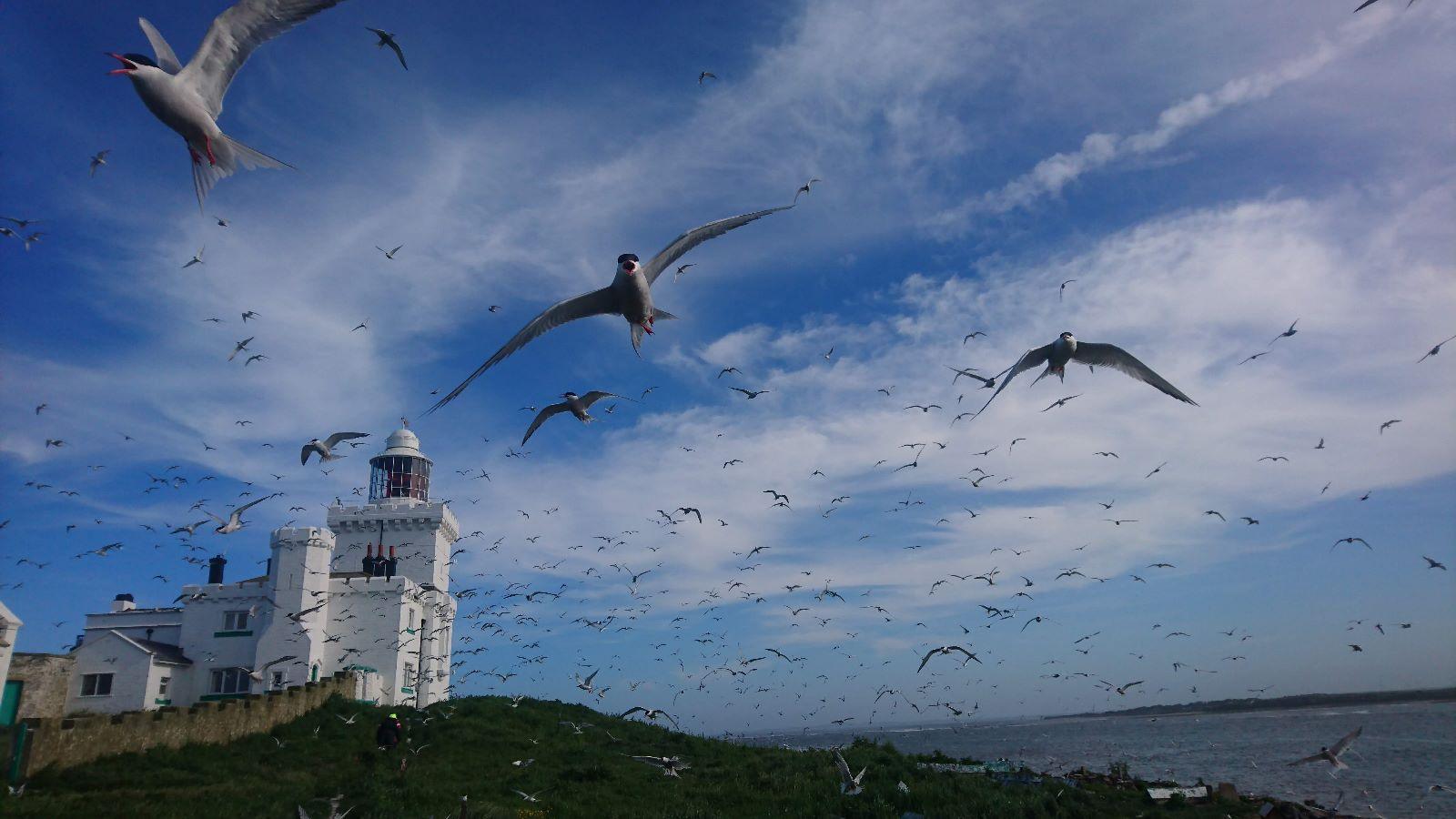
- Published25 April 2023

- Published18 August 2022
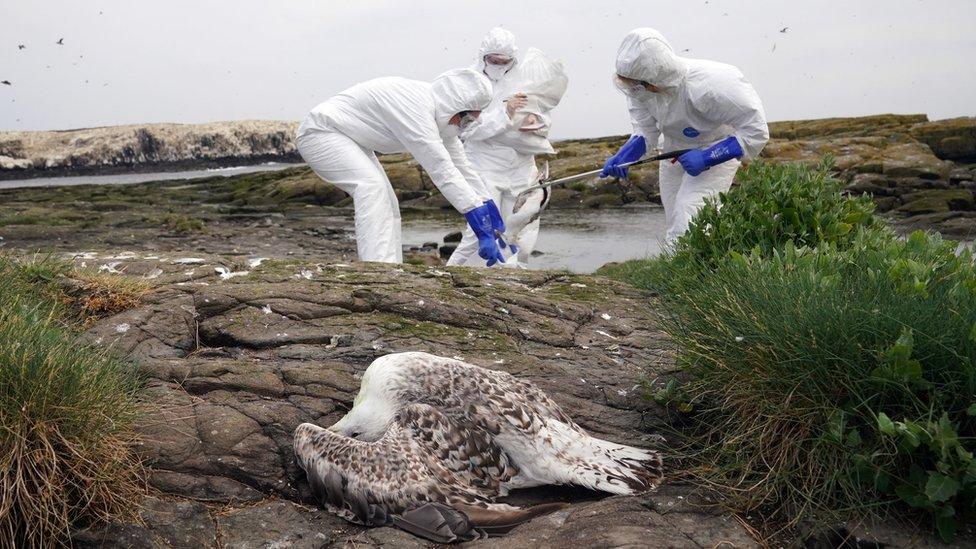
- Published25 July 2022
